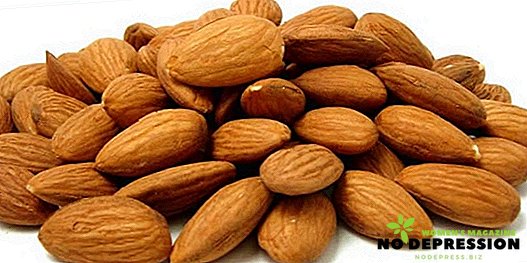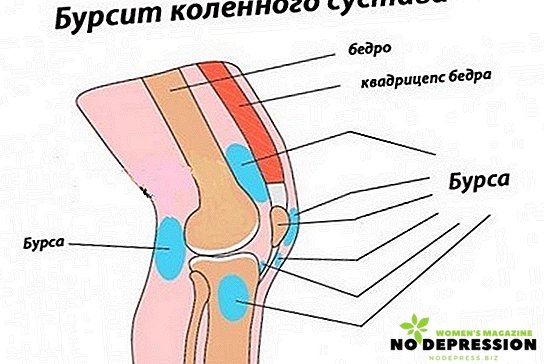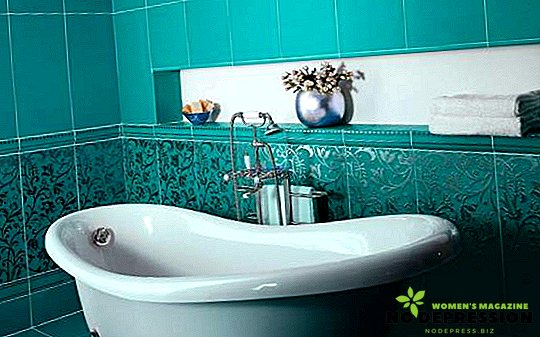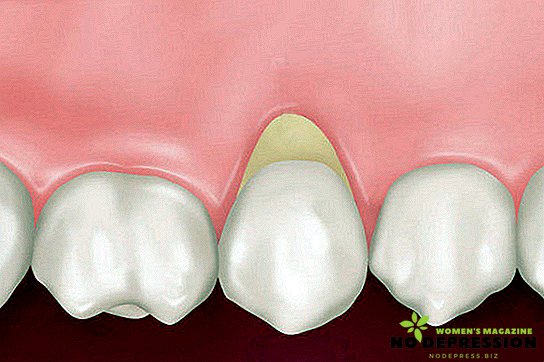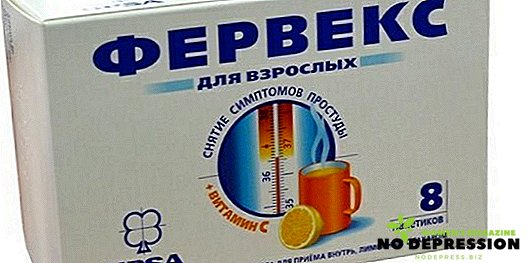Many men after 40 years of age begin to experience discomfort, burning and cramping when urinating, pulling back pain (lower abdomen), decreased performance and erection. The reason - infection or urethritis is one of the frequent urological diseases, requires a comprehensive approach to diagnosis and treatment.

General description of the disease
Urethritis - inflammation in the urethra, namely on the mucous membrane of the urethral epithelium, which occurs under the influence of viruses, pathogenic bacteria, yeast-like fungi, parasites.
Men who have promiscuous sexual lives are at risk. Other reasons:
- surgical intervention in the area of the urethra, bladder;
- diabetes;
- urolithiasis disease.
The lack of timely treatment entails serious complications. In particular, violations in the erectile, urogenital system. Only an integrated approach to early treatment will avoid serious consequences in the future.
Urethritis classification
Depending on the etiology, urethritis is divided into 2 large groups:
- infectious, caused by specific (non-specific) agents: gonococci, gardnerella, staphylococci, streptococci, E. coli);
- non-infectious, occurring against the background of diseases of the urethra, stone formation, diabetes mellitus.
By type of urethritis is divided into:
- primary - the inflammatory process directly in the urethra, is the result of promiscuous sex;
- secondary occurs in case of infection in the urethra from a nearby inflammatory focus (seminal vesicles, bladder, prostate gland, pelvic organs).

Specific
The specific form often develops against the background of sexually transmitted diseases. Caused by specific pathogens, as a rule, several microbes at once in the aggregate. A provocative factor can be a number of comorbidities: tuberculosis, gonorrhea, mycoplasmosis, trichomoniasis, syphilis, chlamydia, papillomavirus.
Signs of specific pathology are usually observed immediately after sexual intercourse. Surgical manipulation, hypothermia of the body, failure of the immune system, other chronic foci of infection in the body, trauma of the penis can become a push for the reproduction of microbes.
Non-specific
The form of the disease caused by microbial agents: streptococci, staphylococci, enterococci, Escherichia coli, gardnerella, etc.
Non-infectious urethritis by types are distinguished:
- allergic, manifested as an intolerance reaction of any components;
- congestive, occurs against the background of venous stasis in the pelvic organs;
- traumatic, caused by trauma, damage to the urethra with the introduction of a foreign object, rupture (tear) due to a number of diagnostic procedures (urethroscopy, cystoscopy, catheterization, bougienage).
Depending on the causative agent that caused the nonspecific urethritis, it can happen:
- gonorrheal;
- mycoplasma;
- gardnerellezny;
- Trichomonas;
- chlamydia;
- viral;
- bacterial;
- mixed;
- ureaplasma;
- mycoplasma;
- mycotic.

Candida
Urethritis caused by yeast-like fungi of the genus Candida.
Bacterial
A type of disease with a lesion of the urethra caused by a number of pathogens: Pseudomonas (intestinal) bacillus, Klebsiella, Proteus, Enterococci, Staphylococci, Streptococci.
Gonorrheal
Urethritis caused by gonococci.
Viral
The causative agent of infection is herpes, chlamydia.
Trichomonas
The disease caused by infectious pathogen - Trichomonas.
Possible complications
Inflammation of the urethra requires urgent treatment. If you leave the problem without attention, the unpleasant consequences and complications are inevitable with the further spread of the inflammatory process from the urethra to the prostate gland, testicles, scrotum.
What can be complications?
- orchitis;
- epididymitis;
- prostatitis.
The prolonged absence of drug therapy will inevitably lead to a failure of the reproductive system, stagnation in the urethra, urinary retention.
- In case of infection with gonococci, congestion in the urethra, severe pain during urination, acute urinary retention amid the narrowing of the urethra are observed.
- Symptoms during infection with chlamydia: burning in the urethra, damage (damage) to the urinary system as a whole, fraught with irreversible consequences.

If inflammation of the urethra is caused by urolithiasis, you should consult with a neurologist. If caused by a sexually transmitted infection, with a venereologist. The recurrent form of urethritis should be examined additionally by an immunologist, since the reason may be hiding in the immunodeficiency state of the patients.
Men can not even ignore the first, minor signals of urethritis: pain, burning, itching and pain during urination, discharge of urine with pus and blood.
You can not tolerate unpleasant symptoms! It should appear to the urologist, undergo a comprehensive examination and the proposed drug therapy according to the chosen scheme and on an individual basis.
Symptoms of urethritis in men
The first signs of infectious urethritis begin to appear after 5-7 days from the moment of infection. Non-infectious form may occur much earlier. Main symptoms:
- burning, pain when urinating;
- difficulty urinating urine, seminal fluid with pus (blood);
- lethargy jet;
- the appearance of mucous secretions from the opening of the urethra;
- bonding of the walls of the urethra;
- discomfort during sexual intercourse;
- temperature rise up to +37.5 degrees;
- redness, swelling of the urethra orifice.
Symptoms of non-infectious urethritis, depending on the type:
- traumatic: burning and pain when urinating;
- congestive: impaired sexual function, although clinical signs may be completely absent;
- allergic: pain and burning in the urethra, swelling by type of allergy.

Signs of infectious urethritis, depending on the type of flow:
- tubercular: rapid fatigability, excessive sweating, increased subfebrile temperature;
- gardnerellezny with an incubation period of 1 week up to 3-4 months and mixed symptoms;
- chlamydial with a chronic course, minor discharge from the urethra, burning and cramps are absent;
- ureaplasma with discharge of white-green discharge, burning and itching when urinating, symptoms are especially pronounced after sexual intercourse or alcohol intake;
- mycotic with an incubation period of 9-20 days, discharge of watery pale pink whiter, itching, burning during urination;
- trichomonas accompanied with discharge of sero-white discharge, difficulty urinating, itching and swelling of the head of the penis;
- bacterial with quite erased symptoms, incubation period of 3-4 months. The main symptom is purulent discharge from the urethra;
- gonorrheal with discharge of grayish-yellow discharge when urinating, turbid urine with blood (pus).
Diagnostics
Even minor signs of urethritis should be a reason to consult a urologist for the purpose of conducting a detailed diagnosis. In case of infection after sexual intercourse, you should additionally consult a dermatovenerologist.
The examination begins with a visual examination of the genitals (scrotum, prostate, urethra). Next, the doctor redirects to the passage of a number of laboratory, instrumental studies;
- General analysis of urine by batch intake of fluid to determine the level of white blood cells, the increase of which clearly indicates the development of the inflammatory process;
- blood test for suspected bacterial urethritis;
- Ultrasound of the prostate, ureter, bladder;
- PCR for more accurate, rapid detection of the pathogen in a smear;
- three-glass test;
- urethroscopy;
- urine analysis according to nechyporenko;
- scrapings (smear) of the urethra to determine the infectious type of pathogen;
- urethrography;
- radiology of the urethra with the introduction of a contrast agent.
1-2 days before the diagnosis, patients should completely abandon sexual intercourse, taking antibiotic drugs. 2 hours before taking a smear - do not urinate. 0.5 hours before the research - do not smoke.
Drug treatment
Therapy at the initial stage in the acute course of urethritis is medication. The goal is to remove the infection from the ureter, to contribute to the regeneration and restoration of the affected walls of the urethra.
The main purpose is antibiotics with the release form: capsules, tablets, ointments, creams, gels for external use. Additionally:
- antimicrobial drugs (solutions) for the purpose of washing the urethra, washing out microbes and viruses;
- vitamin complexes;
- infusions, decoctions of herbs (as maintenance therapy) for oral administration, application of compresses, added to the bathroom with a firming, toning, soothing effect;
- water solutions, ointments for external use.
If the inflammatory process is caused by infectious agents, the treatment is carried out with antibiotics of the penicillin and tetracycline groups with a therapeutic course and dosages determined by the attending physician taking into account the existing symptoms, the stage of the disease.
Treatment course with:
- acute urethritis - 5-7 days;
- chronic - 10-12 days.
Many antibiotics cause side effects: headache, dizziness, indigestion. The prescription of drugs is done exclusively by a specialist. Self-medication is excluded.
It should be understood that with urethritis caused by a viral infection, antibiotics will become virtually useless, because these drugs affect only the bacterial form of the disease.
For example, candidal urethritis is viral, and therefore can be treated exclusively with antifungal drugs (Levorin, Clotrimazole, Nystatin).

Often, doctors prescribe 2 drugs at once: antibiotics and antiviral drugs (Famciclovir, Valacyclovir, Acyclovir), for example, if the pathology is triggered by viral agents. The course of treatment is 10-12 days with the obligatory observance of the regimen, the multiplicity of medications.
Do not stop therapy yourself, as soon as the symptoms begin to disappear. An undertreated acute illness can quickly take on a chronic, relapsing nature. The treatment will be protracted, long.
The main group of antibacterial agents:
- tetracyclines (erythromycin, tetracycline, doxycycline);
- macrolides (Azithromycin);
- cephalosparins (Cefazolin, Ceftriaxone);
- fluoroquinolones;
- sulfonamides.
The best drugs in case of infection with an infectious agent:
- Chlamydia - Azithromycin, Levomitsetin;
- gonorrhea - Erythromycin, Cefotaxime, Cefaclor, Spiramycin, Fuzidin;
- Trichomonas - Natamycin, Trichomonacid, Nitazol, Metronidazole.
Additionally, it is recommended for men to carry out installations by introducing into the urethra a solution (1%) of Chlorhexidine, Miramistin. Required daily procedures for 5-6 days.
Urethritis Candles
Rectal suppositories are an excellent supplement in the treatment of urethritis. Apply externally, act locally. Do not have side effects, do not cause irritation of the gastrointestinal tract. Contraindications are minor:
- anorectal tumor;
- individual intolerance.
 In acute urethritis, suppositories are prescribed with:
In acute urethritis, suppositories are prescribed with:
- benzocaine;
- lidocaine;
- extract of belladonna.
Efficiency proved candles:
- Betiol for relieving inflammation, discomfort in the bladder, spasms in the intestinal walls.
- Hexion with a soft base, uniform distribution over the urethral mucosa.
- Diklovit with anti-inflammatory, analgesic effect. Enter up to 2 times per day.
The best remedies for the treatment of bacterial urethritis: Digran, Hexicon, Metronidazole, Acyclovir. In case of viral urethritis - Indomethacin ointment for treating the glans penis up to 3-4 times a day, it turns out to be a drying, antiviral effect.
Treatment of candidal urethritis caused by a yeast-like fungus is carried out mainly by antifungal agents: Clotrimazole, Pimafucin, Fluconazole, Nystatin, Levorin, Amphotericin.
An effective combination of drugs in this group with antibiotics. In addition - rectal suppositories with analgesic, anti-inflammatory effect - Diklovit, Indomethacin, Hexicon. Candles are not addictive and no less effective compared with pills and injections.
Symptoms and treatment of chronic urethritis
In chronic urethritis, the symptoms appear less pronounced. Outside exacerbations are practically absent. Patients do not care. The exacerbation of the inflammatory process is observed under the influence of a number of adverse factors. Key features:
- slight pain when urinating;
- insignificant discharge from the urethra.
Treatment is identical, as in the acute form:
- antibiotics;
- anti-inflammatory drugs;
- antiseptics (solutions) for carrying out installations (injections into the urethra) with subsequent washing out of the pathogenic microflora.
Additionally, it is important to maintain the body's defenses, include immunomodulators, multivitamin complexes in the course of general therapy. In the chronic form of urethritis during the decline of unpleasant symptoms are shown to conduct physiotherapy: laser, electrophoresis, magnetic therapy.
Preventive measures
Prevention is simple:
- timely treatment of internal chronic (infectious) diseases;
- the use of a sufficient amount of liquid, not less than 2.5 liters per day;
- avoid stress, promiscuous sex with different partners;
- redefining nutrition, lifestyle;
- rejection of bad habits.
Urethritis - a complex disease of the genitourinary system, is fraught with serious complications. Symptoms are similar to other pathologies, so only a doctor can make an accurate diagnosis. Early treatment at an early stage contributes to a quick cure.
The lack of therapeutic measures will lead to the development of prostatitis, sexual dysfunction, infertility. These diseases are difficult to treat. In advanced cases, they can be almost incurable.


